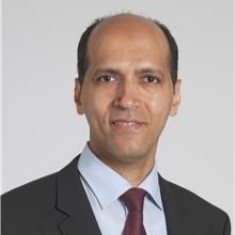|
| Doreen Granpeesheh Speaker Series for the Interdisciplinary Approach to the Treatment of Autism: Autism and Epilepsy: A Coincidence or a Biomarker? |
| Sunday, May 26, 2024 |
| 8:00 AM–8:50 AM |
| Convention Center, 300 Level, Ballroom B |
| Area: AUT; Domain: Applied Research |
| Chair: Doreen Granpeesheh (Autism Media Network) |
| CE Instructor: Doreen Granpeesheh, Ph.D. |
| Presenting Author: MOHAMMED ALDOSARI (Cleveland Clinic Foundation) |
| Abstract: Autism Spectrum Disorder (ASD) and epilepsy are both neurological conditions that can significantly impact a child's development and overall well-being. While they may appear to be independent diagnoses, there is a higher co-occurrence rate than chance would predict. This presentation will explore the complex relationship between ASD and epilepsy, equipping therapists with the knowledge and tools to better support their clients who experience both conditions. The presentation will delve into the following key areas: • Prevalence and Risk Factors: We will examine the co-occurrence rates of ASD and epilepsy, exploring potential risk factors and underlying biological mechanisms. • Clinical Presentations: We will discuss the diverse ways in which epilepsy can manifest, including potential challenges in identifying and diagnosing epilepsy in individuals with ASD. • Treatment Considerations: We will explore the evidence-based practices for treating epilepsy to address the unique needs of this population. Here, we will also discuss potential side effects of anti-seizure medications and how they may impact behavior or learning, equipping ABA therapists to collaborate with the medical team for optimal treatment. • Emerging Technologies: We will explore the potential of using new technologies including AI analysis of EEG (electroencephalogram) data for early detection of ASD. This discussion will highlight the promise and limitations of new technologies, emphasizing their role as potential tools to support informed clinical decision-making. • Collaborative Care: We will emphasize the importance of collaboration between ABA therapists, neurologists, and other healthcare professionals in developing comprehensive treatment plans. |
| Instruction Level: Intermediate |
| Target Audience: Therapists and physicians taking care of individuals with ASD. |
| Learning Objectives: At the conclusion of the presentation, participants will be able to: (1) Describe the co-occurrence rates of ASD and epilepsy and identify potential risk factors for this dual diagnosis; (2) Explain the diverse clinical presentations of ASD and epilepsy, including the challenges of identifying and diagnosing co-occurring conditions; (3) Discuss evidence-based treatment approaches for both ASD and epilepsy, with a specific focus on adapting ABA therapy to meet the needs of clients with this dual diagnosis; (4) Identify potential side effects of anti-seizure medications and how they may impact behavior or learning, allowing for collaboration with the medical team for optimal treatment. |
| |
| MOHAMMED ALDOSARI (Cleveland Clinic Foundation) |
 Dr. Mohammed Aldosari holds a joint appointment as the as the Director of the Center for Pediatric Neuroscience at the Cleveland Clinic Foundation, and Associate Professor at Case Western Reserve University, both in Cleveland, Ohio. He specializes in the evaluation and management of pediatric behavioral disorders especially Autism and ADHD and collaborates closely with Cleveland Clinic’s Center for Autism. Prior to joining the Cleveland Clinic, Dr. Aldosari established and directed the Center for Autism Research, Riyadh, Saudi Arabia which is a novel collaborative venture between the King Faisal Specialist Hospital and Research Center and the Saudi Basic Industries Company (SABIC) commissioned to transfer knowledge and technology to Saudi Arabia and the region. He also directed autism clinics at several private and public institutions. Dr. Aldosari is American Board certified in Pediatrics and in Child Neurology. He has multiple publications and presentations in national and international journals and meetings in the field of autism especially in genetics and innovative technology including sensing technologies and robotic-assisted therapy. He is the principle investigator of several ongoing studies including a large prevalence of autism study, developing Tele-Diagnostic tools and Arabic stimulus for Eye-Tracking Dr. Mohammed Aldosari holds a joint appointment as the as the Director of the Center for Pediatric Neuroscience at the Cleveland Clinic Foundation, and Associate Professor at Case Western Reserve University, both in Cleveland, Ohio. He specializes in the evaluation and management of pediatric behavioral disorders especially Autism and ADHD and collaborates closely with Cleveland Clinic’s Center for Autism. Prior to joining the Cleveland Clinic, Dr. Aldosari established and directed the Center for Autism Research, Riyadh, Saudi Arabia which is a novel collaborative venture between the King Faisal Specialist Hospital and Research Center and the Saudi Basic Industries Company (SABIC) commissioned to transfer knowledge and technology to Saudi Arabia and the region. He also directed autism clinics at several private and public institutions. Dr. Aldosari is American Board certified in Pediatrics and in Child Neurology. He has multiple publications and presentations in national and international journals and meetings in the field of autism especially in genetics and innovative technology including sensing technologies and robotic-assisted therapy. He is the principle investigator of several ongoing studies including a large prevalence of autism study, developing Tele-Diagnostic tools and Arabic stimulus for Eye-Tracking |
|
| |